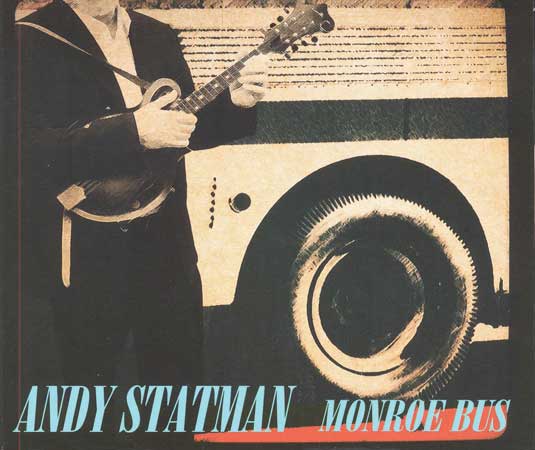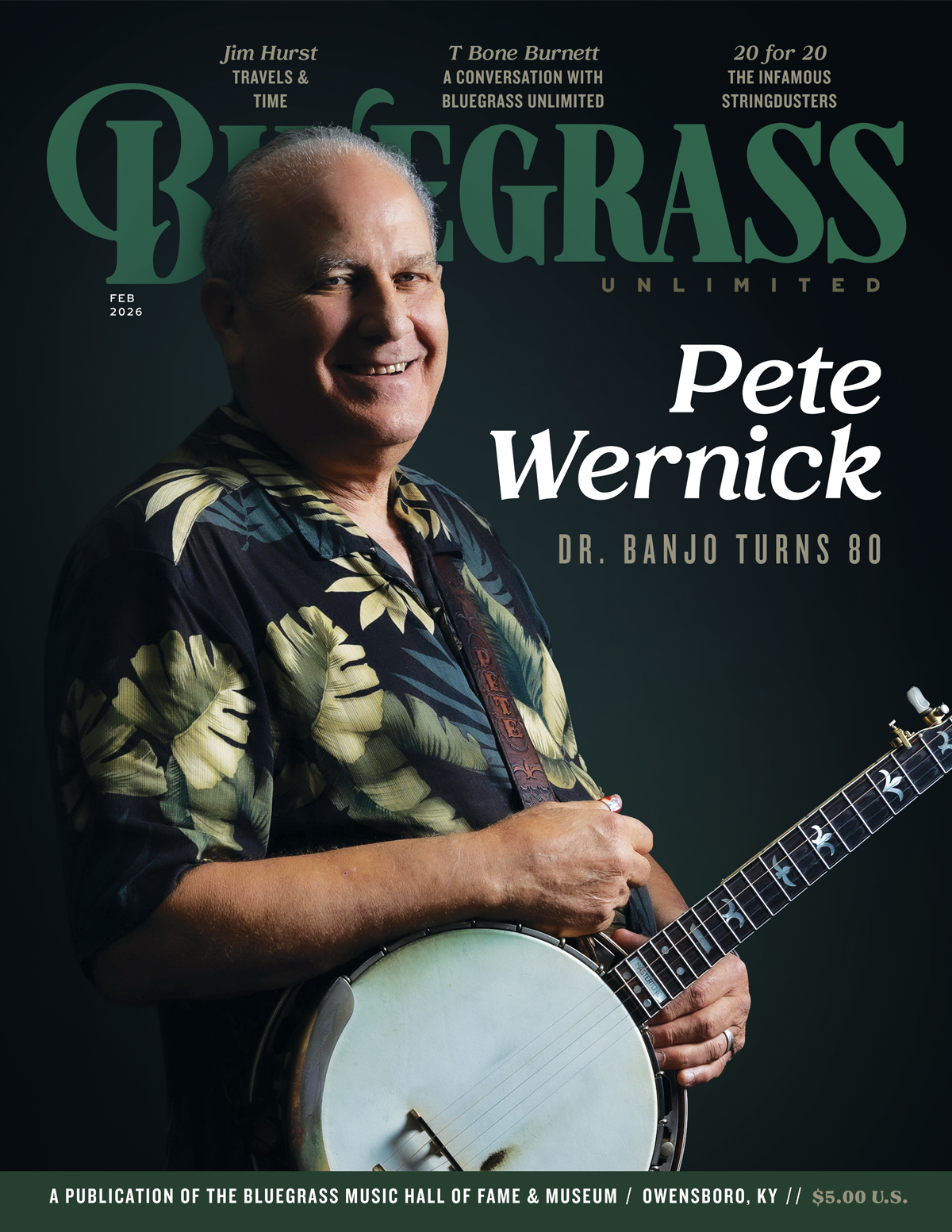ANDY STATMAN
Shefa Records Horn-3008
Among the notes and graphics of this outstanding CD is an offstage snapshot of Bill Monroe at the 1966 Roanoke Bluegrass Festival. Walking into the scene at that moment—literally in Monroe’s footsteps—is a 16-year-old from New York City named Andy Statman. Given Statman’s subsequent career as a radically inventive mandolin virtuoso, his memberships in the adventurous bluegrass-based bands Country Cooking and Breakfast Special, and his added gifts as a saxophonist and clarinetist, it might seem unjust to link him with the Father of Bluegrass. But Monroe himself was an inventive mandolinist of the highest order, and Andy lovingly absorbed Bill’s music. It’s likely that Statman’s occasionally audacious style—with its jazzy riffs, double-time passages against the main beat, and paradoxically disciplined dissonances—succeeds thanks to a strong foundation in Monroe’s artistry.
The original Monroe Bus concept was “a collection of interpretations and improvisations on the instrumentals of Bill Monroe.” That expanded into new dimensions, but the core idea remained. The results should delight numerous listeners whose tastes encompass newgrass and innovative, but roots-based acoustic music.
The title-track opener starts out sounding like a previously unknown Monroe recording from a late-1950s Decca Records session—lonesome and loping twin fiddles, bluesy minor-to-major thirds, and triplet ornamentations. But Andy’s solo finally shifts the musical time machine into the present. Other highpoints are “Statman Romp,” with complimentary reverberations of the Monroe classic “Roanoke” and Jewish klezmer music; “Old East River Road” and “Mockingbird” with their Celtic tonalities; and “Lakewood Waltz,” which owes much to Monroe recordings like “Lonesome Moonlight Waltz.”
There’s an “In The Pines” mode to “Brorby’s Blues” (a nod to Bruce Brorby, the project’s superb engineer/mixer). It’s worth mentioning that Glenn Patscha’s tasteful organ playing here and on a few other tracks hearkens pleasingly to producer Owen Bradley’s use of that instrument on Bill Monroe’s 1958 I Saw The Light gospel album. And “Raw Ride” is a tour de force tribute to the Monroe show-stopper “Rawhide” with Michael Daves providing impeccable bluegrass rhythm guitar (also on “Statman Romp” and the title-track). Special praise must go to Michael Cleveland. He’s just brilliant throughout—whether overdubbing perfect Bobby Hicks/Charlie Smith-style twin fiddles, channeling Vassar Clements or former Statman bandmate Kenny Kosek, or just being his prize-winning self.
Statman’s mandolin modes are here in full vigor; rousing and then reflective, humorous and then poignant, and exuberant at any tempo. Every note is precisely intentioned and shaped with a fitting emotion. It’s not a collection for strict traditionalists, but listeners whose tastes travel into newgrass and new acoustic music should enjoy boarding the Monroe Bus. (Shefa Records, JAF Station, Box 7131, New York, NY 10116, www.andystatman.org.)RDS

